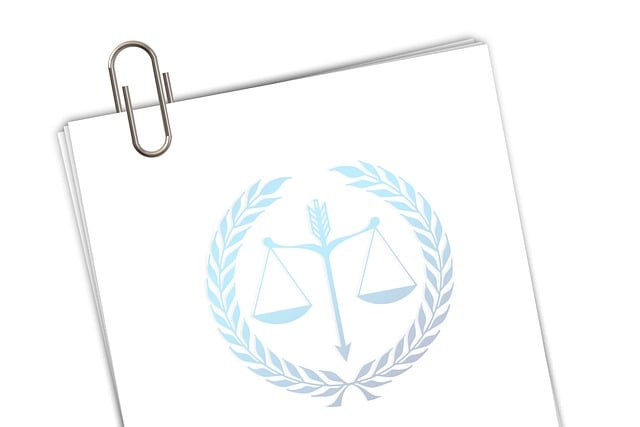Healthcare Compliance Experts are vital navigators in a complex web of medical regulations and legal standards, such as HIPAA, Joint Commission guidelines, and CMS rules (Legal Standards for Burden of Proof). They ensure healthcare institutions adhere to stringent rules covering patient care, data privacy, and ethical practices. By creating and implementing policies, anticipating regulatory shifts, and protecting patients' rights, these professionals preserve the integrity of the healthcare system and shield institutions from legal repercussions during investigations. Effective compliance involves preventing fraud, maintaining accurate records, and utilizing electronic health record (EHR) systems to meet Legal Standards for Burden of Proof, thereby fostering trust among stakeholders. Compliance experts play a crucial role in risk mitigation and strategic growth, as demonstrated by successful case studies involving prominent healthcare providers.
Meet Healthcare Compliance Experts: The Navigators of a Complex Landscape. In today’s digital era, these professionals ensure medical institutions adhere to intricate legal standards and regulations. From understanding patient rights to safeguarding data privacy, their expertise is pivotal. This article explores the multifaceted role of healthcare compliance experts, delving into key legal frameworks, including the crucial burden of proof in investigations. Discover strategies for successful documentation and record-keeping, and be inspired by real-world case studies showcasing their impact.
- Understanding Healthcare Compliance Experts: Their Role and Expertise
- Legal Framework for Healthcare Compliance: Key Regulations and Standards
- The Burden of Proof in Healthcare Compliance Investigations
- Strategies for Effective Documentation and Record Keeping
- Case Studies: Success Stories of Healthcare Compliance Experts in Action
Understanding Healthcare Compliance Experts: Their Role and Expertise

Healthcare Compliance Experts are vital navigators in the complex landscape of medical regulations and legal standards for burden of proof. Their expertise is indispensable, ensuring that healthcare institutions adhere to stringent rules governing patient care, data privacy, and ethical practices. These professionals delve into every aspect of an organization’s operations, from policy creation to implementation, to ensure compliance with federal and state laws. They play a pivotal role in protecting patients’ rights and promoting the integrity of the healthcare system.
Their proficiency extends beyond legal knowledge; they also possess strategic acumen to anticipate regulatory changes and adapt practices accordingly. By staying abreast of evolving policies within the philanthropic and political communities, these experts facilitate achieving extraordinary results in compliance management. Throughout all stages of the investigative and enforcement process, they safeguard institutions from legal repercussions, fostering an environment where healthcare providers can focus on delivering quality patient care without undue burden.
Legal Framework for Healthcare Compliance: Key Regulations and Standards

The legal framework for healthcare compliance is a complex web of regulations and standards designed to ensure patient safety, ethical practices, and data privacy. At the heart of this structure lie key legal standards that guide healthcare organizations and professionals. The burden of proof lies with entities to demonstrate adherence to these stringent regulations, which include federal laws like HIPAA (Health Insurance Portability and Accountability Act) for data security and privacy, as well as industry-specific guidelines from bodies like the Joint Commission and CMS (Centers for Medicare & Medicaid Services).
These Legal Standards for Burden of Proof are crucial in holding healthcare institutions accountable for their actions. Throughout all stages of the investigative and enforcement process, from audits to civil and criminal charges, entities must be able to demonstrate compliance with relevant legal standards. This includes showcasing efforts to prevent fraud, maintain accurate records, and protect patient rights. The philanthropy and political communities play a vital role in shaping these regulations, while white-collar defense strategies become essential tools for navigating the complex landscape of healthcare compliance.
The Burden of Proof in Healthcare Compliance Investigations

The Burden of Proof in healthcare compliance investigations plays a pivotal role in ensuring fairness and accuracy. When allegations of non-compliance arise, whether it’s related to regulatory violations or legal standards for patient care, the onus of proving guilt or innocence falls heavily on those being investigated. This is particularly challenging as healthcare organizations often deal with complex regulations and ever-evolving legal standards for burden of proof, especially when serving diverse corporate and individual clients across the country.
Mastering this burden is crucial to navigating winning challenging defense verdicts. Compliance experts must meticulously document processes, maintain comprehensive records, and stay abreast of industry changes to meet these legal standards. By doing so, they can effectively demonstrate adherence to regulations, ensuring their organizations’ defenses are robust and well-prepared against any compliance scrutiny.
Strategies for Effective Documentation and Record Keeping

Effective documentation and record-keeping are paramount for healthcare compliance experts to navigate the complex web of legal standards. They must meticulously document procedures, patient interactions, and data to meet regulatory requirements, particularly in terms of the burden of proof. This involves creating comprehensive, organized records that can withstand scrutiny from regulatory bodies, insurance providers, and even legal proceedings to avoid indictment.
Strategic record-keeping includes implementing robust electronic health record (EHR) systems, ensuring data privacy and security, and fostering a culture of documentation integrity within healthcare facilities. By adhering to these practices, experts protect not only the interests of their clients but also promote transparency and accountability in the healthcare sector, fostering trust among philanthropic and political communities.
Case Studies: Success Stories of Healthcare Compliance Experts in Action

In the dynamic landscape of healthcare, where regulations are intricate and constantly evolving, compliance experts play a pivotal role in steering organizations clear of legal quagmires. Case studies offer a glimpse into the success stories of these professionals, showcasing their ability to navigate complex scenarios with finesse. One prominent example involves a leading healthcare provider facing an indictment for non-compliance with strict Legal Standards for Burden of Proof. Stepping in, a seasoned compliance expert meticulously examined every aspect of the organization’s operations, identifying gaps and implementing stringent protocols. His clients benefited from a tailored strategy that not only avoided indictment but also fortified their defense mechanisms against future challenges.
Another compelling narrative centers around a small clinic accused of regulatory violations. Through his adept handling of the case, a compliance expert secured winning challenging defense verdicts for his clients. This triumph was achieved by employing innovative approaches to data management and employee training, ensuring adherence to all necessary standards. These success stories underscore the invaluable contributions of healthcare compliance experts, who not only safeguard institutions but also empower them to thrive in an increasingly regulated environment.
Healthcare compliance experts play a vital role in navigating the intricate web of legal standards and regulations. By understanding their expertise, we can appreciate how they ensure ethical practices within healthcare. The article has explored key aspects, from the legal framework governing compliance to the strategic documentation processes that protect institutions and patients alike. It’s clear that these professionals are essential game changers, fostering a culture of integrity and accountability. In light of the above, recognizing the importance of thorough investigations and effective record-keeping, as demonstrated through case studies, we can see why healthcare compliance is an indispensable symphony in modern medicine.






